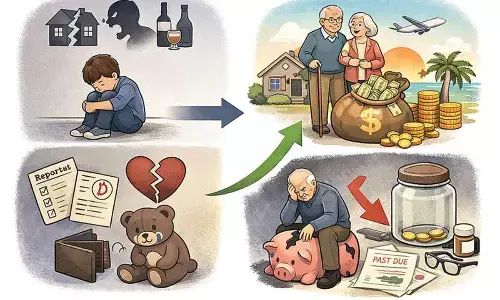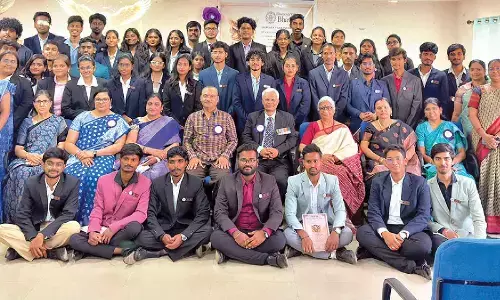Childhood trauma increases risk of chronic pain in adulthood: Study
Share :

Physical, sexual, or emotional abuse, or neglect, either alone or combined with other types of childhood trauma, increases the risk of chronic pain and related disability in adulthood, according to a new research.
London : Physical, sexual, or emotional abuse, or neglect, either alone or combined with other types of childhood trauma, increases the risk of chronic pain and related disability in adulthood, according to a new research.
The new findings underscore the urgency of addressing adverse childhood experiences (ACEs) -- potentially traumatic events that occur before 18 years of age -- and taking steps to mitigate their long-term impact on people's health.
ACEs may affect a child or teenager directly through physical, sexual, or emotional abuse, or neglect -- or indirectly through exposure to environmental factors like domestic violence, living with substance abuse or parental loss.
Chronic pain is one of the leading causes of disability worldwide. Long-term painful conditions such as low back pain, arthritis, headache and migraine, can affect a person's daily functioning to the point they can't work, eat properly, or participate in physical activities.
For the study, published in the European Journal of Psychotraumatology, the team conducted a systematic review that included 85 studies. Of those, results from 57 studies could be pooled in meta-analyses.
They found that individuals exposed to a direct ACE, whether physical, sexual, or emotional abuse, or neglect, were 45 per cent more likely to report chronic pain in adulthood compared to those not exposed.
Childhood physical abuse was associated with a higher likelihood of reporting both chronic pain and pain-related disability. The odds of reporting chronic pain or pain-related disability in adulthood increased with exposure to any direct ACE, either alone or combined with indirect ACEs.
The risk of reporting chronic pain in adulthood significantly increased from exposure to one ACE to four or more ACEs. "These results underscore the urgency of addressing ACES, particularly in light of their prevalence and health repercussions," said Prof Jan Hartvigsen, from the University of Southern Denmark.
"A more nuanced understanding of the precise relationship between ACEs and chronic pain will empower healthcare professionals and policymakers to devise targeted strategies to help diminish the long-term impact of early-life adversity on adult health."
The researchers proposed that future research should delve into the biological mechanisms through which ACEs affect health across the lifespan, aiming to deepen understanding and develop ways to mitigate their impact.










